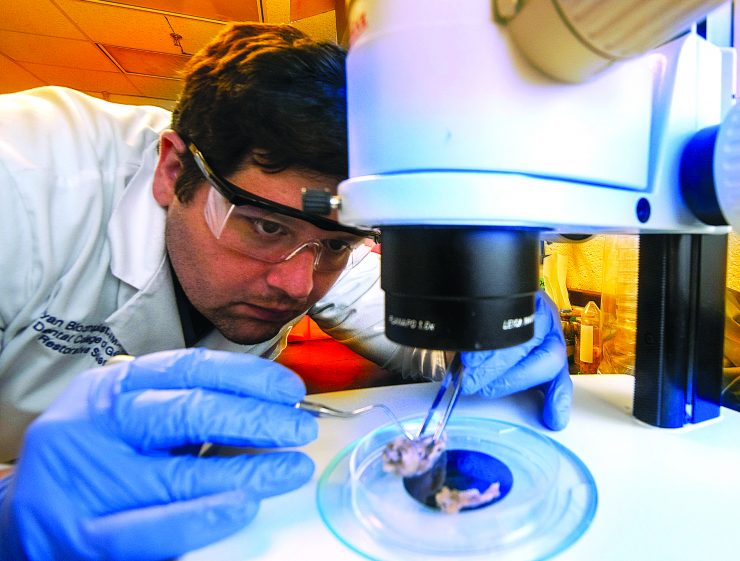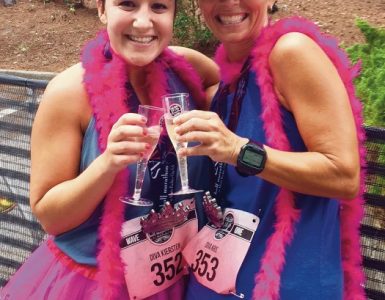As both a dentist and a cell biologist, Dr. Ryan Bloomquist has always been intrigued by an odd aberration: The nerves an animal is born with are typically set in stone for life — except in the case of teeth.
Non-mammals continually shed and regrow teeth throughout their lives, and every new tooth accompanies a new set of corresponding nerves. Humans replace primary teeth with only a single set of adult teeth. But that single new set demonstrates the ability of the human body to grow new nerves. Bloomquist, who earned his dental degree from DCG in 2017 while simultaneously earning a PhD from Georgia Tech, is seizing on the implication to determine if this ability is transferable to other areas of the body.
People who have lost mobility or organ function due to nerve death — those paralyzed by an accident, for instance, or blinded by a condition such as optic neuropathy — have typically resigned themselves to a lesser quality of life than they had known before. But if new nerve growth is possible, as Bloomquist theorizes, then the landscape is teeming with the potential to alleviate these kinds of challenges.
Bloomquist, assistant professor in the Department of Restorative Sciences, recently received a $94,649 intramural grant to test his theory that new nerve growth is possible not only in the mouth, but in other sites as well.
“It has been demonstrated that a tooth transplanted to a different part of the mouth has sensory capabilities, indicating new nerve growth to that site,” he says. “That got me thinking about the potential for teeth to recruit nerves in other areas of the body as well.”
His work with laboratory animals has shown that transplanted teeth will indeed grow new nerves in body parts other than the mouth. “We don’t yet know the mechanism, but proteins and growth factors are probably involved,” says Bloomquist. “We are looking at single-cell sequencing: What cell populations are expressing what factors? How do the immature cells compare to the mature ones?
Once we discover the precise cocktail, we hope to apply it to areas where nerve growth is needed.”
The implications, he notes, are enormous. “Right now, we can grow an organ in a petri dish, but we can’t induce nerve growth. We hope this research can help make it happen. I hope to find the blueprint from within the cells themselves.”
For more information about how to help support DCG research, contact Dr. Babak Baban, Associate Dean for Research, via email or by calling 706-721-2032.










